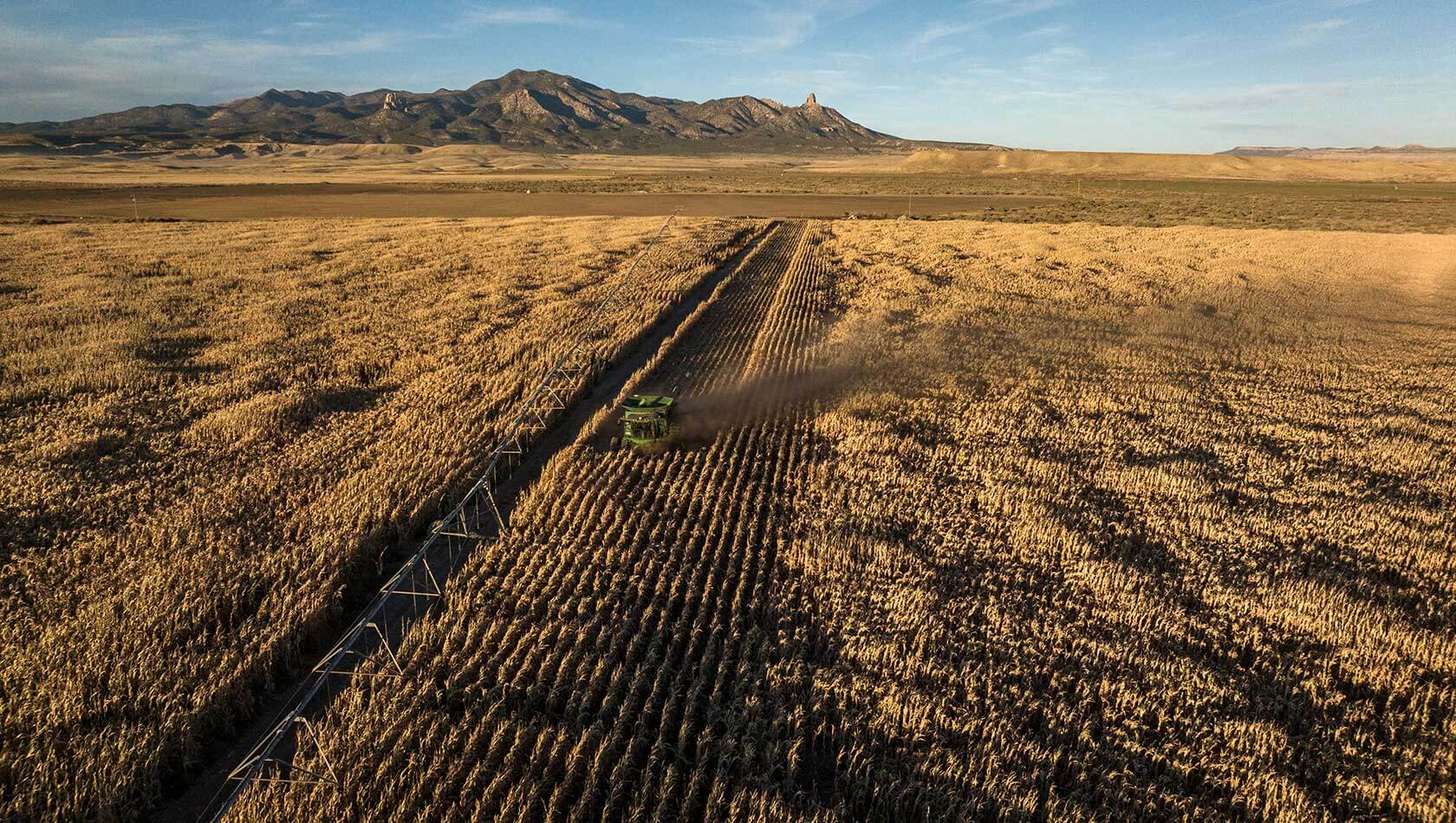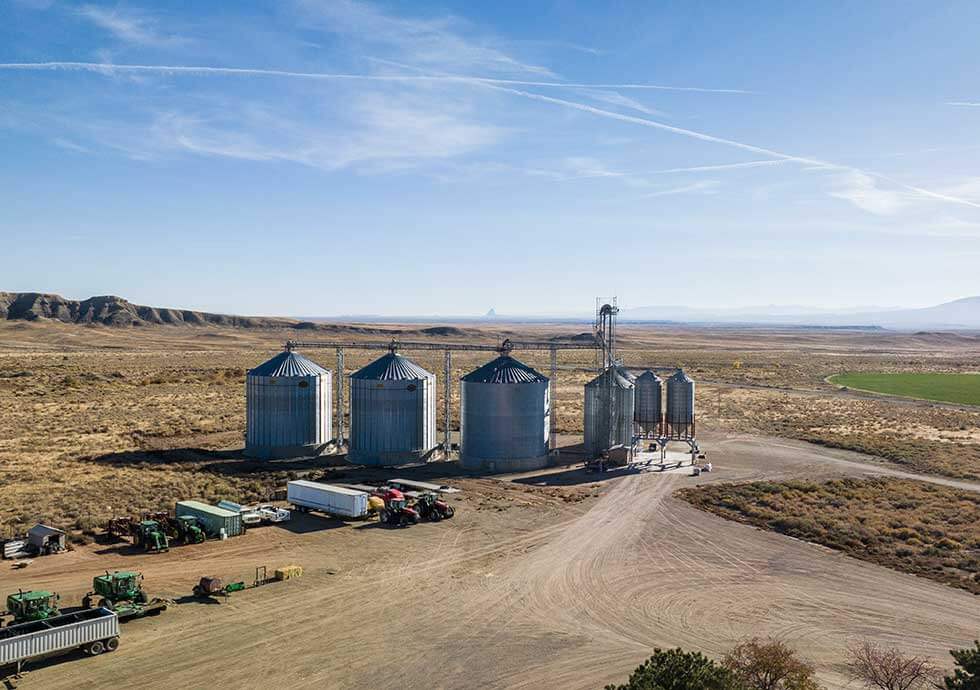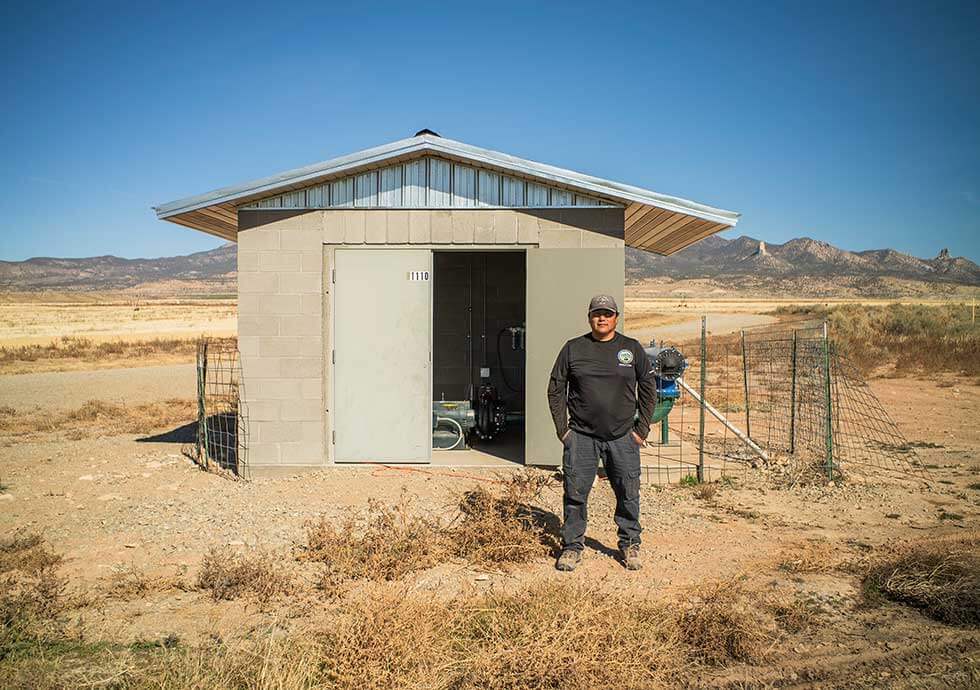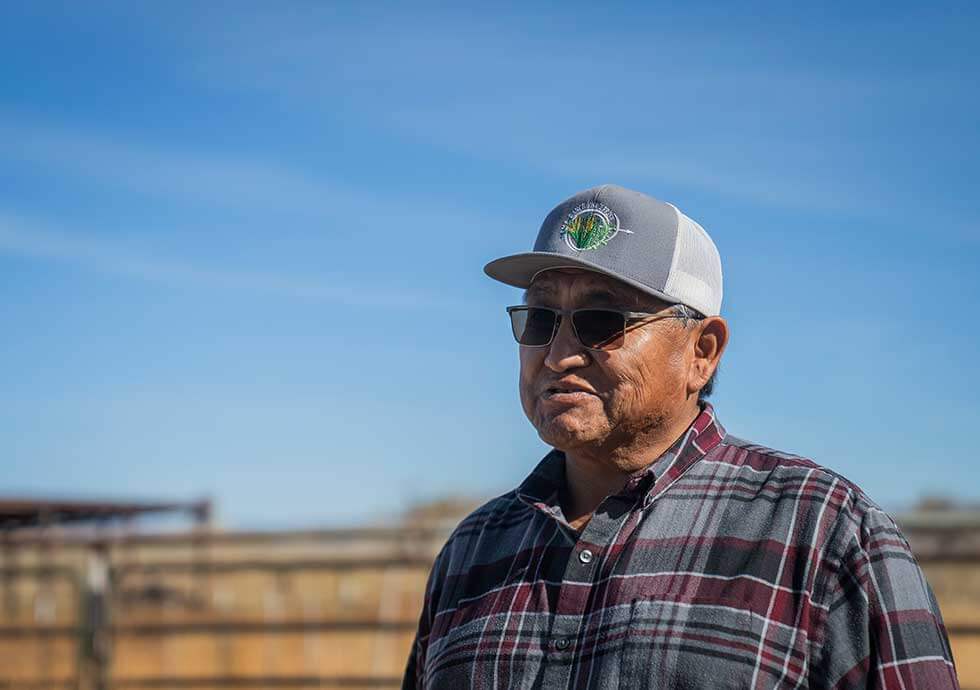In arid southwest Colorado on Ute Mountain Ute Land, a landscape of high desert plains, buttes, and rugged canyons leading to 14,000-foot peaks, water is sacred.
As recently as the 1990s, the town of Towaoc, CO, on the Ute Mountain Ute Reservation did not have potable drinking water. Despite securing water rights via early 20th century treaties, Towaoc residents and the Ute Mountain Ute Tribe (UMUT) have long relied on water delivered by truck and have faced myriad challenges and disputes in the fight for their water rights for decades.
In the 1980s, the Bureau of Reclamation developed the Dolores Project, a water storage and delivery system anchored by the impoundment of the Dolores River at McPhee Reservoir and designed to bring water to communities around Cortez, CO. For the first time in their history, Towaoc residents received clean water piped to their homes.
Equally important, the Dolores Project included a 41-mile canal that made possible an ambitious agricultural endeavor for the UMUT. After careful soil and hydrologic studies, approximately 7,700 acres were designated for irrigated agriculture and ranching on what would become the Ute Mountain Ute Farm & Ranch Enterprise (FRE). Today, Tribal members grow alfalfa, corn, and wheat, and raise over 700 head of cattle. The operation also includes a milling facility that processes blue, yellow, and white corn for retail sale under the Bow & Arrow Brand.

Farmers Conservation Alliance is working with the UMUT to complete installation of 10 micro-hydro power plants along water delivery pipelines. Currently the Tribe has 3 operational micro-hydro units that take advantage of the natural topography to generate 7 kW of power. FRE aims to install 7 more micro-hydro units to offset the FRE’s pumping and operational costs.
FCA is also supporting the UMUT in their efforts to construct an overflow reservoir to capture up to 1,000 acre feet of water during high flows as a way to extend the growing season and improve drought resiliency. Together, we have secured funding for the design of the reservoir. FCA will continue to work closely with the Tribe to secure funding for construction of the reservoir and to install a floating solar array to generate additional renewable energy.
 Grain silos at the Farm & Ranch Enterprise mill where they make non-GMO cornmeal for retail sale under the Bow & Arrow Brand.
Grain silos at the Farm & Ranch Enterprise mill where they make non-GMO cornmeal for retail sale under the Bow & Arrow Brand. Michael Vicente, Farm & Ranch Enterprise’s Irrigation Manager, outside a micro-hydro power plant.
Michael Vicente, Farm & Ranch Enterprise’s Irrigation Manager, outside a micro-hydro power plant. Eric Whyte’s family has ranched on Ute Mountain Ute lands for generations.
Eric Whyte’s family has ranched on Ute Mountain Ute lands for generations.
“Partnerships like these empower communities to find innovative solutions for Colorado’s water challenges and adapt in the face of drought.”
– Lauren Ris, Colorado Water Conservation Board (CWCB) Director
“The Colorado Water Conservation Board (CWCB) was proud to support this important effort through our Federal Technical Assistance grant program, which assists grantees to secure the resources they need to submit competitive federal grant applications,” said Lauren Ris, CWCB Director. “Partnerships like these empower communities to find innovative solutions for Colorado’s water challenges and adapt in the face of drought. We’re grateful to work alongside the Ute Mountain Ute Tribe and the Farmers Conservation Alliance—together, we’re building a future of resilient water resources that supports both people and agriculture across Colorado.”
Water has brought jobs, food security, and a sense of resiliency to UMUT, but climate change and drought pose an increasing threat. Increasing efficiencies in their system and capturing renewable energy are major steps toward achieving resilient, sustainable food security and employment in the high desert.
Water remains a contentious issue in southwest Colorado, as in much of the West, and the UMUT continues to fight an uphill battle to regain the water allocated to them via treaty. To support Tribal resiliency, many partners have been working with the Tribe in their efforts to modernize infrastructure, create more renewable energy, and build capacity to sustainably manage resources into the future.
“Tribal Nations are important partners as we tackle the water crisis in the West, bringing knowledge, creative ideas and a unique perspective to policy and projects,” said Carlos Fernandez, The Nature Conservancy’s Colorado State Director. “The Nature Conservancy is proud to support and work with the Ute Mountain Ute Tribe on projects to address water security for the Tribe as well as improvements in irrigation efficiency for their farmland and crops. The latest RCPP award is well deserved and demonstrates the type of investment needed to enable Tribal Nations and other water users to proactively address the impacts of drought.”
